Three of America’s largest retailers are now involved directly in the craft beer business, not only selling craft beer but producing their own brands to satisfy budget-minded beer drinkers.
Costco, Trader Joe’s and Walmart each take a slightly different approach, but they all offer their own private-label, contract-brewed lines of beer designed to appeal to craft beer drinkers like you and me. That’s not really news, but Walmart’s house brand recently landed the company in some hot water. A lawsuit filed in Ohio alleges that Walmart is deceiving consumers, tricking them into buying something that only appears to be craft beer. (Read the lawsuit here.)
What is Craft Beer?
The lawsuit alleges that Walmart is tricking customers into believing that the Trouble Brewing line of beers are craft, when in fact they are not. So what is a craft brewery anyway?
According to the Brewers Association (BA), the organization that represents the interests of America’s small, independent breweries, a craft brewery produces less than six million barrels per year and is privately owned.
The BA’s definition is not without its flaws, but it is the closest thing we have to a definition of craft.
What is small? The threshold, according to the BA, is 6 million barrels per year. Only a very tiny percentage of America’s 5,000-plus breweries produce more than 6 million barrels per year. In fact, you can count them on one hand. Only 0.001 percent of the breweries in the USA fail to qualify as craft breweries based on production volume.
By the Brewer’s Association’s definition, Tin Dog Brewing in Seattle is small. They brew a few hundred barrels of beer per year. Sierra Nevada Brewing is also considered small. They brew well over a million barrels per year. So I guess size really doesn’t matter.
What is independent? The idea that a brewery must be privately owned is less ambiguous, but is still a bit confusing. Golden Road Brewing stopped being a craft brewery once it was acquired by Anheuser-Busch, a publicly traded corporation. That makes sense, but is Full Sail Brewing still a craft brewery even though it was acquired by Encore Capital Group, a private equity firm that is not at all a beer-related company?
The Brewers Association represents America’s small and independent brewers, so the idea that they define craft breweries as being small and independent is a bit self-serving. Their definition fits their own purposes. Also, the Brewers Association is just one organization and it does not speak for the public at large.
The real question is, how does the public define craft beer? Seriously, away from us beer geeks, does the public even care?
What’s Behind the Label
On the West Coast, Costco’s Kirkland Signature Beers are brewed by Hopfen und Malz Brewing Company in San Jose, which is better know as Gordon Biersch. Back east the beers are brewed by New York Brewing Company, better known as Matt Brewing. For what it’s worth, both of those breweries meet the Brewers Association’s definition of a craft brewery. Costco does not disguise who brews Kirkland Signature beers; the origin of the beer is stated on the label.
Down the street, Trader Joe’s also has its own private-label beers, offering a wide range of beers from what appear to be different breweries. If you’ve perused the beer aisle at TJ’s you’ve probably noticed beers from unfamiliar breweries like Josephsbrau, Ol’ Burro Brewery, River Trent Brewing, and so on. These beers are brewed by various breweries, some of which meet the BA’s definition of craft brewery. Trader Joe’s is not exactly transparent about the source of these beers and you could easily drink an Ol Burro beer without knowing that it was brewed by Golden Road Brewery, which is owned by Anheuser-Busch.
Not wanting to miss the party, Walmart recently introduced its Trouble Brewing line of beers. According to the retail giant, in their own words, Walmart brews the beer in collaboration with Trouble Brewing.
According to public records, the Trouble Brewing beers are actually produced by WX Brands, which is part of North American Breweries, along with breweries like Genesee Brewing, Magic Hat Brewing, Pyramid Breweries, Portland Brewing and others. North American Breweries is owned by Cerveceria Costa Rica S.A., a big food and beverage conglomerate out of Costa Rica that sells over $1 billion dollars worth of various products annually. Turns out, Walmart’s Trouble Brewing beers are actually brewed by Genesee Brewing of Rochester, New York.
Estimates suggest that Genesee makes more that six million barrels for Walmart alone. The beers are stocked at more than 3,000 Walmart locations in 45 states.
I don’t spend a lot of time shopping at Walmart, I admit, but from what I’ve heard they mix the beers in with all the other craft beers and hope customers think that Trouble Brewing is no different than Sierra Nevada Brewing, Deschutes Brewing, Ninkasi Brewing, or any of the other craft brands they might happen to sell. There is nothing on the label suggesting that Trouble Brewing is actually a Walmart brand hailing from a brewery that fails to meet the definition of craft.
That aint cool, but did you really expect Walmart to be cool?
Beer Gets a Day in Court
The lawsuit against Walmart was filed in Ohio and seeks compensatory and punitive damages for anyone in the state who’s purchased a Trouble Brewing beer, based on the notion that Walmart tricked people into thinking it was a craft beer.
It is similar to a lawsuit filed last year in California by a man who claimed MillerCoors tricked him into believing Blue Moon was a craft beer. That case was dismissed by the judge, who was of the opinion that MillerCoors had not really misrepresented anything.
Does the case against Walmart have more merit? Craft beer lovers tend to stand up for the little guy, and Walmart certainly isn’t a little guy, but is Walmart required by law to respect one organization’s definition of craft beer? The Brewers Association’s definition of a craft brewery was not handed down to Moses on the mountain top; it was created to serve their own purposes.
Was Anyone Really Fooled?
The lawsuit is about deception more than it is beer. Is Walmart claiming that Trouble Brewing beers are something that they actually are not? No, they are not. The label says IPA and it is an IPA. Nothing on the label suggests that Trouble Brewing beers are craft. I suppose the argument is that the labels themselves look more like craft beer than they do big, corporate mega brews. The labels have a crafty appearance, but that’s totally subjective.
Even if Walmart were asserting that the beers were craft, the court would need to define exactly what is a craft brewery. I’m not sure I want a judge handing down a legal definition for craft beer.
To me, craft beer is a lot like pornography. I can’t tell you what it is, but I know it when I drink it. It’s similar to how United States Supreme Court Justice Potter Stewart described his threshold test for obscenity in a landmark lawsuit back in 1964—I can’t tell you what it is but I know it when I see it.
In Seattle, where I live, we’ve gotten to the point that craft beer really doesn’t need to be differentiated. It is beer. You know what they call Chinese food in China? Food.
No Trouble At All
The only trouble with Trouble Brewing is that some consumers didn’t go to the trouble of researching the brand before they bought it. Yes, it would be fair and decent of Walmart to include a statement like “Trouble Brewing beers are brewed for Walmart by Genesee Brewing” on the label, but nobody has ever accused Walmart of being fair and decent.
I may not like the way Walmart is presenting these beers, but I don’t see any impropriety. This is expected behavior for the mega retailer. Moreover, we do not need a legal definition of craft beer. Think about how messy things could get if every brewery you love had to defend its status as a craft brewery. The last thing the industry needs is more regulations and I don’t need my favorite breweries burdened with gaining certified craft status.
Furthermore, I don’t need lawyers and judges holding my hand as I browse the beer aisle. As I said, I know craft beer when I drink it.
Buyer beware is always a good policy. An IPA from a brewery you’ve never heard of, in the beer aisle at Walmart, is probably a pretty risky purchase, especially if it’s 30 percent cheaper than all the other IPAs on the shelf.
Cheers to our sponsors, like…

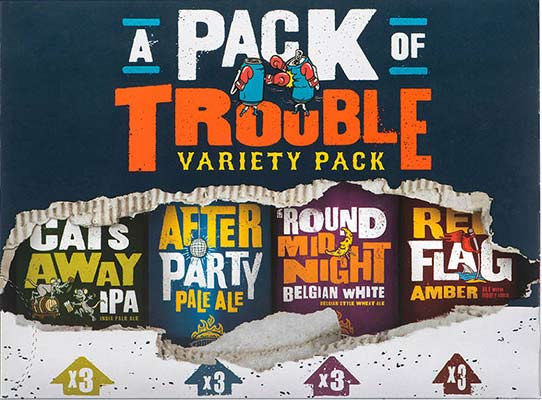

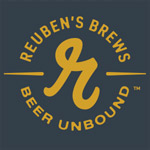

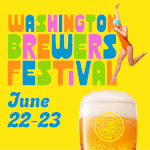

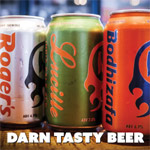

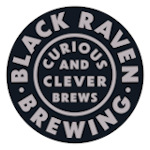
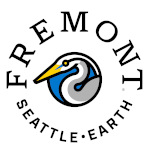

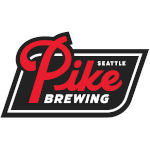



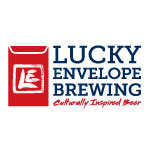

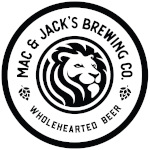
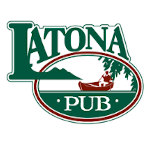
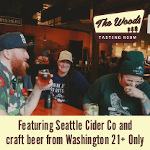
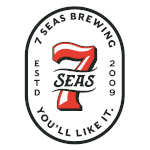







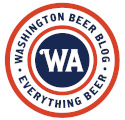
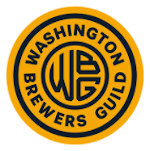


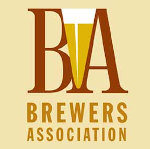
“but nobody has ever accused Walmart of being fair and decent”. That kind of Seattle snobbery is just silly. Think beyond yourself to families that get a little more for their dollar when times are tough and low skilled workers can get a job to support their family. You could have written this article without taking the pot shots. Don’t be that guy.
Perhaps, in that particular statement, I should have said “any large mega retailer” instead of singling out Walmart. Blame it on my snobbery if you like, but there is also a harsh reality about the way they treat their employees and the suppliers that stock their shelves, not to mention the smaller, family-owned retailers they crush.
Well written and a pleasure to read.